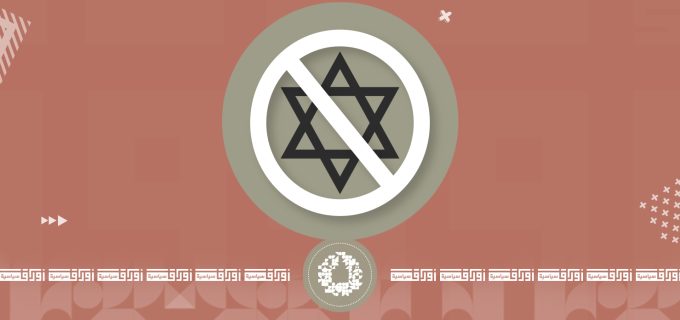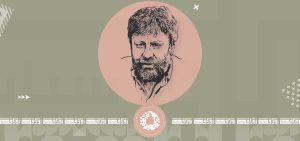The Neturei Karta group, which is against Zionism and the Israeli entity that usurps the Palestinian right, is one of the groups that hardly many people know. And fast for the state of the Israeli entity.
And they see the so-called Israeli Independence Day (the anniversary of the establishment of the Israeli entity) as a day of mourning, and they fast and pray to God to remove the state of the Israeli entity, and burn Israeli flags and raise the Palestinian flag. And they believe in only one Palestinian state, with Al-Quds Al-Sharif as its capital.
And they do not deal with the government of the Israeli entity, and they do not practice its racist and occupying policy against the Palestinians, and even prohibit entry to Al-Aqsa Mosque, and they do not approach the Al-Buraq Wall, according to the teachings of the Torah, which prohibits this (because Jerusalem was opened by force, not by divine choice), and they believe that whoever does This requires that he receive the most severe punishment.
Members of the group constantly defend the right of the Palestinian people to their land in all international and regional forums in which they participate, and even constantly apologize to Palestinians and Arabs in general for the actions practiced by the state of the Israeli entity, and describe what it is doing as criminal and contrary to Jewish law.
However, the definition of the group and its activities in the media and political circles, Islamic and Arab, remains very weak. Therefore, this paper attempts to shed light on the Neturei Karta group, that Jewish voice strongly opposed to the occupying Israeli entity and its sickly Zionist ideology; By introducing it, and mentioning its most important activities and endeavors in combating Zionism and its leaders, and going deeper into the reasons for their defense of Palestine and its cause, and what are the outcomes of their activities in defense of the Palestinian cause.
But before this, the paper presents a definition of the Zionist thought, how this thought was established, and what are the most prominent organizations and groups that reject it and fight its affinity to the Jewish faith, or oppose the racist and inhuman practices practiced by the Israeli entity against the Palestinian people.
First: The emergence of Zionism
Before starting to mention the stations of the establishment of Zionism, it is necessary to refer to their definition first. Zionism, according to what its theorists believed, is defined as “the movement aimed at returning the Jews to their ancestral homeland” (Eretz Yisrael), according to what was stated in the divine and Messianic promises to the Jews”[1].
The Zionist project began to appear with the events of the liberation or enlightenment movement in Europe that extended during the eighteenth century, which had a great impact on the souls of the Jews, as it became possible for the Jews to accept complete fusion among the peoples of the European countries present in them as citizens like Christians, with the same rights and upon them The same duties, which some Jewish theologians considered part of the Diaspora, which was imposed upon them as an expiation for their sins[2].
“But the liberation of the Jews and their enjoyment of all the rights that the Enlightenment brought to the European nations was not actually achieved, or not all of it, as the Enlightenment began to break its assumptions little by little in Europe, and freedom of opinion turned into a new intellectual domination, which led to the transformation of intellectual domination to Political domination swept most of the European countries in the second half of the nineteenth century, and the Jews were persecuted again, and extremist national theories were produced, such as the theory of blood and land, which rejected the Jewish presence completely on European soil” [3].
As a result of this refusal, anti-Jewish attitudes multiplied in Eastern and Western Europe, especially after the case of Alfred Dreyfus in France, a Jewish leader accused of spying against the Third French Republic in 1894, and then he was acquitted, but this accusation doubled the anti-Jewish attitudes in France and expanded after This applies to all of Europe[4].
Here the Jews found themselves persecuted again in the countries that accepted the assimilation and fusion in their peoples, and they were the ones who managed the vocabulary and principles of the Enlightenment movement in Europe, which prompted some of them in Eastern Europe to adopt ideas that can be called “Jewish nationalism”, which means that the Jews can In different locations and different backgrounds, they are bound together as one nation.
As a result of the Enlightenment, in which the adoption of humanistic philosophical concepts expanded greatly among the adherents of Judaism in Europe, pantheism rates rose at the expense of monotheistic beliefs within the followers of the Jewish religion. That pantheism that made spiritual unity of existence and material unity of existence two synonymous concepts, “during which it became possible to talk about the sacred in the language of the temporal, the temporal in the language of the sacred, the spiritual in the language of the material, and the material in the language of the spiritual”[5], which led to the easy spread of Zionist thought and philosophy. In rejecting the idea of the personal return of Christ and replacing it with the idea of a Jewish state that replaces the Messiah for the religious or that paves the way for his return for the committed religious.
The Jewish state was not defined at the beginning of the Zionist project in Palestine, but the goal was only to find an alternative land. Other options were put forward, such as Argentina, Angola, Uganda and Libya[6]. his alleged state.
Perhaps the most prominent theorist of the Zionist project is Rabbi Nathan Bernaum, who was the first to use the concept of Zionism in the Journal of Emancipation.




